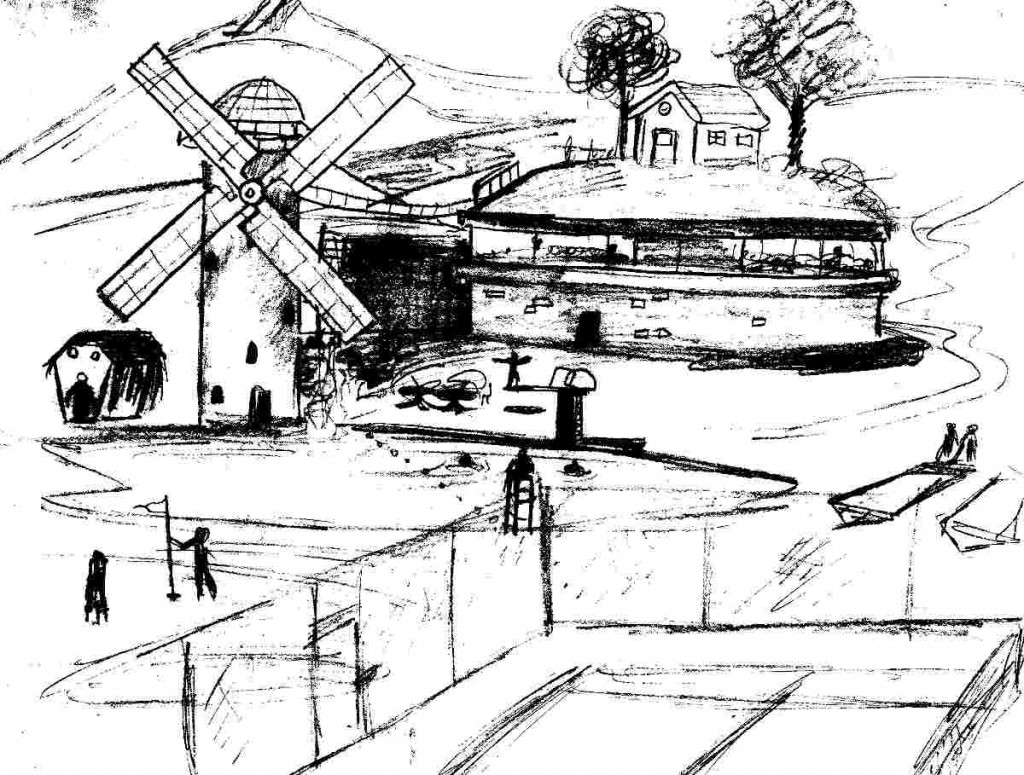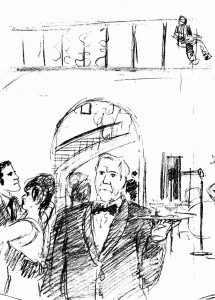All my life I’ve been fascinated with the way most people refuse to deal with death. Many people simply can’t stand to talk plainly about death. When Uncle Fred dies, they can’t bear to say “Uncle Fred died.” Rather, it's something like Uncle Fred “passed away” Or “Uncle Fred went to heaven,” even though no one is sure whether there is a heaven—or if there really were a heaven, no one knows how one would really know whether Uncle Fred really earned his way in. Regardless, whenever people die, most people talk as though they are sure the loved one is still alive and that they are absolutely certain that he or she didn’t go to hell.
Further, when people speak of the death of loved ones, they usually speak in a strange voice and with strange facial expressions. It's difficult to say why people have such a difficult time talking plainly about death, but they do. I don't claim to have the entire answer, but I am intrigued by the insights of Terror Management Theory.
People also talk this strange way when their pets die. A few months ago, an acquaintance told me that his 10 and 12 year old sons had been crying constantly, for several weeks, that their dog “passed away and went to dog heaven.” Good grief! Then again, we are also living at a time when Americans will go so far as to pay thousands of dollars for chemotherapy for their 15-year old dogs. Most of us just can't let go.
As a teenager, I often noticed this discomfort with death and I wondered why so many people can’t shoot straight on such an important topic. Why can’t people plainly admit that within 150 years every person currently living on earth will be dead, and that this includes your parents, your children, everyone one of your friends and even those know-it-all preachers who so often assure you that you continue to live after you die?
This fascinating topic of death came up vividly last week. A co-worker was telling me about a strange request being made by her 70-year old mother. Her mother has repeatedly raised the topic of her own (eventual) death and she has requested that when she dies, she wants her children to embalm her and place her body into a glass coffee table, lying on her back, with her eyes open. She wants to remain part of the family forever, as best she is able. My co-worker and her family were somewhat amused by this request until it became clear that her mother wasn’t kidding. Her mother really wants her dead body to remain in the living room of one of her adult children, where it will be plainly visible to her children and grandchildren (and presumably great-grandchildren, etc). Here mother claims to be figuring out how to make this glass coffee table entombment a reality.
Hearing this story reminded me of a concept I co-developed with a buddy named Mike Harty back in high school (in 1974). Mike and I often discussed death back in high school. Many of our classmates found the topic to be disturbing, but it energized and entertained us. One day, we wondered what kind of potential market might exist for post-death “living” arrangements for families whose loved ones were now corpses. We called our concept “Holland House,” (I believe that we borrowed the named from this real life opulent estate). Our company slogan would be: “We think your loved ones should not be deprived of their earthly pleasures.” And also this one: Holland House: Open to all dead people from 7 to 70.” Mike even drew a photo of Holland House, which would offer wealthy families the finest in post-death community living:
[caption id="attachment_8651" align="aligncenter" width="445" caption="Art by Mike Harty"]

[/caption]
Holland House would be a large lavish resort for dead people, an alternative for families not willing to plop their dead loved ones into graves. Here's how we planned to market Holland House.
Important announcement for bereaved families. Consider this alternative to burial or cremation. Simply send your loved ones to Holland House and we will carry on where the nursing home left off. Our attendants will start the day by taking your loved one’s corpse out of bed, dressing it and wheeling it to the breakfast table, where it would sit (admittedly stiffly and silently) in front of fresh food prepared by highly trained chefs. After breakfast, we will wheel your loved one to a wide variety of activities, including various classes and recreational activities.
There would be visiting hours, where the families could come to talk to their dead loved ones—Holland House staff would wheel the corpse into a brightly lit visiting area, with tea and cookies, where the family could present an update about what was going on with the living members of the family. Our professional staff would update the family as to their loved ones' activities at Holland House. For instance, we might advise: "Yesterday we had a photography class and horseback riding. Tomorrow, we will have dancing classes--two attendants will assist each corpse--and shuffleboard."
[caption id="attachment_8653" align="alignright" width="282" caption="Art by Mike Harty"]

[/caption]
Holland House would have a photographer on staff to keep the family photo album updated with photos of
everyone in the family, alive or otherwise.
[I'm not recounting these ideas from pure memory. Mike and I wrote up an outline of the services to be offered by Holland House]
Mike and I planned that Holland House would have private rooms for each of the guests, with a color TV in each room. We’d have an extensive library and a medical center (where we’d we well stocked in deodorant). We offer night classes too, including a favorite: “How to get the most out of life.”). There would be a dating service, where we’d match residents based on their accomplishments while they were alive. We’d have a high end clothes store, so that our residents were always wearing up-to-date fashions. Our foods would be naturally grown organic foods fertilized by former residents. Oh, and we'd be careful at Holland House that we'd never refer to our residents as "dead."
Perhaps you're wondering how long would a corpse stay at Holland House? The answer is simple: as long as the family couldn’t bear to dispose of the corpse in some other way or until the family money ran out, whatever came earlier.
I am offering this idea for free to anyone who wants to offer Holland House services to people with far too much money. Then again, perhaps post-death living might get so popular someday that Medicare would pick up the tab, which could lead to multiple generation families residing on entire wings of Holland House . . .
Mike and I created all of this for our amusement many years ago, but this concept was all triggered by the fact that so many people can't acknowledge that dead people were really and truly dead.


